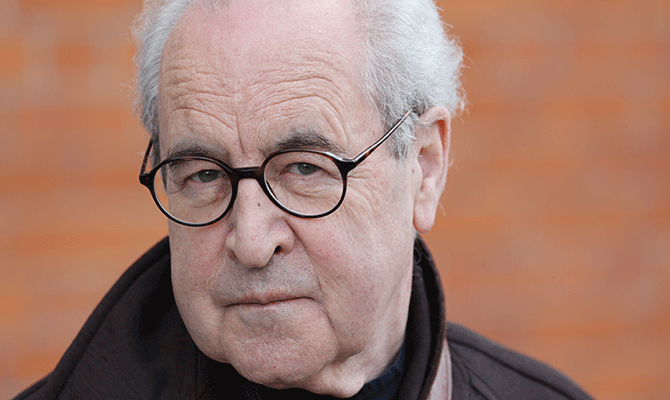
Understanding what is a life sentence in Ireland is crucial for anyone navigating the Irish legal system or seeking clarity on sentencing laws.
In Ireland, a life sentence is the most severe punishment for serious crimes like murder, but its practical application—such as the number of years served—can vary.
This 2,000-word guide explores the meaning, history, and nuances of life sentences in Ireland, including how they compare to other sentences like manslaughter.
We’ll also address common questions about sentencing durations, parole, and related laws, incorporating keywords like what is a life sentence in years and what is a mandatory life sentence in Ireland to provide a thorough resource for readers.
The History of Life Sentences in Ireland
The concept of life sentences in Ireland has evolved significantly over the centuries, shaped by both historical practices and modern legal reforms.
In medieval Ireland, justice was often administered through Brehon Laws, a system of customary laws that emphasized compensation (like the payment of an “eric” fine) over imprisonment for crimes, including homicide.
However, with the imposition of English common law starting in the 12th century, more punitive measures like imprisonment and execution became standard for serious offenses.
By the 19th century, life imprisonment emerged as a formal alternative to the death penalty in Ireland, especially after the abolition of capital punishment for most crimes. The Offences Against the Person Act 1861, which applied to Ireland under British rule, established life imprisonment as a potential sentence for murder. After Ireland gained independence in 1922, the new state retained much of the British legal framework, including the concept of life sentences. The Criminal Justice Act 1964 formally abolished the death penalty for murder in Ireland, replacing it with a mandatory life sentence in Ireland for all murder convictions—a practice that continues today.
Over time, the interpretation of a life sentence has shifted. While historically a life sentence could mean lifelong incarceration, modern Irish law allows for parole reviews, meaning most life-sentenced prisoners do not serve their entire lives in prison. This evolution reflects a balance between punishment, rehabilitation, and public safety, a cornerstone of Ireland’s contemporary justice system.
What Does It Mean If You Have a Life Sentence?

What does it mean if you have a life sentence in Ireland? A life sentence means that a person convicted of a serious crime—typically murder—has been sentenced to imprisonment for the rest of their natural life. However, in practice, this does not always mean they will remain in prison forever.
In Ireland, a life sentence is indeterminate, meaning there is no fixed end date, but prisoners become eligible for parole after a minimum period, usually 12 to 20 years, depending on the severity of the crime and the judge’s recommendations.
A life sentence carries a lifelong oversight component: even if released on parole, the individual remains under supervision and can be recalled to prison if they breach parole conditions or commit another offense.
This system ensures that the punishment reflects the gravity of the crime while allowing for the possibility of rehabilitation. For example, a mandatory life sentence in Ireland applies automatically to murder convictions, but the actual time served varies based on individual circumstances.
What Is a Life Sentence in Years in Ireland?
What is a life sentence in years in Ireland? Unlike fixed-term sentences, a life sentence in Ireland does not have a predefined number of years. However, data from the Irish Prison Service shows that life-sentenced prisoners typically serve an average of 18 to 22 years before being released on parole.
The exact duration depends on factors like the nature of the crime, the prisoner’s behavior, and the Parole Board’s assessment. For instance, in particularly heinous cases, a judge may recommend a minimum term before parole eligibility, which can range from 15 to 30 years or more. In rare cases, a “whole life” sentence may be imposed, meaning the prisoner is unlikely to ever be released.
The question what is a life sentence in years is often asked because people assume a life sentence equates to a fixed term, but in Ireland, the indeterminate nature of the sentence means it’s tailored to each case, balancing punishment with the potential for reform.
Is Sentenced to Life 25 Years?
Is sentenced to life 25 years? No, a life sentence in Ireland is not automatically 25 years. While some countries, like the United States, may equate a life sentence to a fixed term (e.g., 25 years to life), Ireland’s system is different. A life sentence is indeterminate, and while the average time served might be around 18 to 22 years, there is no set 25-year benchmark. In cases where a judge sets a minimum term—such as 25 years—it’s a guideline for parole eligibility, not a guarantee of release. The Parole Board evaluates each case individually, considering factors like remorse, rehabilitation, and public safety.
How Long Is a Full Life Sentence?
How long is a full life sentence? A “full life sentence” in Ireland, often referred to as a whole life order, means that the prisoner is sentenced to remain in prison for the rest of their natural life without the possibility of parole. This is extremely rare and reserved for the most egregious crimes, such as serial killings or crimes with exceptional brutality. For example, a notorious case might result in a judge recommending that the prisoner never be considered for release. However, even in these cases, the sentence is subject to legal reviews, and humanitarian considerations (e.g., terminal illness) might lead to compassionate release in exceptional circumstances.
How Long Is Manslaughter in Ireland?
How long is manslaughter in Ireland? A manslaughter sentence Ireland varies widely depending on the circumstances of the crime. Unlike murder, which carries a mandatory life sentence in Ireland, manslaughter does not have a mandatory minimum. Sentences can range from a suspended sentence conditions Ireland (where the offender avoids prison if they meet certain conditions) to up to life imprisonment in severe cases. The minimum sentence for manslaughter Ireland is not fixed by law, but sentencing guidelines suggest that typical sentences range from 4 to 15 years, depending on factors like intent, provocation, and the offender’s criminal history.
For example, a voluntary manslaughter case involving significant provocation might result in a 4- to 7-year sentence, while a gross negligence manslaughter case (e.g., a fatal workplace accident) might lead to a lighter or suspended sentence. On average, those serving a manslaughter sentence Ireland might spend 5 to 10 years in prison before release, factoring in parole eligibility.
Is a Life Sentence in the UK 14 Years?
Is a life sentence in the UK 14 years? No, a life sentence in the UK is not automatically 14 years. Similar to Ireland, a life sentence in the UK is indeterminate, meaning it lasts for the offender’s lifetime, with a minimum term (or tariff) set by the judge before parole eligibility.
The 14-year figure may stem from historical averages or specific cases, but it’s not a standard. For example, in England and Wales, the starting point for a murder tariff is often 15 years for less aggravated cases, but it can be 30 years or more for serious crimes like child murder or terrorism-related killings. Whole life orders also exist in the UK for the most heinous crimes, meaning no possibility of parole.
Understanding Fixed-Term Sentences in Ireland
Beyond life sentences, many people are curious about how long they might actually serve for fixed-term sentences in Ireland. Here’s a breakdown of common scenarios:
- 10 year sentence how long will I serve in Ireland: For a 10-year sentence, prisoners typically serve about two-thirds of their sentence before being eligible for release on parole, assuming good behavior. This means you might serve around 6 to 7 years, though remission can reduce this further (up to 25% off for good conduct).
- 5 year sentence how long will I serve in Ireland: With a 5-year sentence, you might serve approximately 3 to 4 years, factoring in remission and parole eligibility, which generally begins after serving half the sentence.
- 2 year sentence how long will I serve in Ireland: For a 2-year sentence, you could serve as little as 1 to 1.5 years, depending on remission and parole. Shorter sentences often benefit from early release programs to reduce prison overcrowding.
Additionally, suspended sentence conditions Ireland may apply in some cases, where a sentence is imposed but not served unless the offender breaches specific conditions, such as committing another crime or failing to attend rehabilitation programs.
Parole and Life Sentences in Ireland
In Ireland, the Parole Board plays a critical role in determining how long a life-sentenced prisoner actually serves. Prisoners serving a mandatory life sentence in Ireland become eligible for parole review after 12 years, though this period can be longer if the judge sets a higher minimum term. The Parole Board assesses factors like the prisoner’s behavior, participation in rehabilitation programs, and risk to the public. Even if released, the individual remains on a life license, meaning they can be recalled to prison at any time if they violate parole conditions.
For example, a prisoner serving a life sentence for a single murder might be released after 18 years if they demonstrate genuine remorse and rehabilitation. However, in cases involving multiple murders or extreme violence, parole might be delayed for 25 years or more, or denied entirely in the case of a whole life sentence.
Comparing Life Sentences and Manslaughter Sentences
The distinction between a life sentence for murder and a manslaughter sentence Ireland lies in intent and sentencing guidelines.
Murder, defined as the unlawful killing with intent, carries a mandatory life sentence in Ireland, ensuring a minimum period of incarceration and lifelong oversight. Manslaughter, which lacks the same level of intent (e.g., killing in the heat of passion or through gross negligence), allows judges more discretion.
The minimum sentence for manslaughter Ireland can be as low as a suspended sentence in mitigated cases, but serious manslaughter cases can still result in life imprisonment, though this is rare.
For instance, a high-profile manslaughter case in Ireland in 2023 involved a fatal stabbing during a domestic dispute, resulting in a 7-year sentence with 2 years suspended, meaning the offender served 5 years.
In contrast, a murder conviction in the same year for a premeditated killing led to a life sentence with a 20-year minimum term before parole eligibility.
Conclusion
Understanding what is a life sentence in Ireland involves recognizing its indeterminate nature, historical evolution, and practical application. While a life sentence means imprisonment for life, most prisoners serve an average of 18 to 22 years before parole eligibility, depending on the crime and their rehabilitation progress. In contrast, a manslaughter sentence Ireland varies widely, from suspended sentences to life imprisonment in severe cases. Whether you’re curious about a 10 year sentence how long will I serve in Ireland, a 5 year sentence how long will I serve in Ireland, or the specifics of parole, Ireland’s justice system balances punishment with the potential for reform. This guide provides a comprehensive overview, ensuring clarity on sentencing laws and their implications for offenders and society alike.



